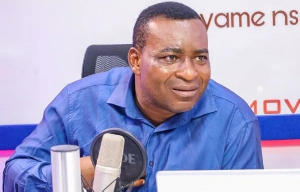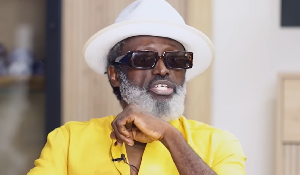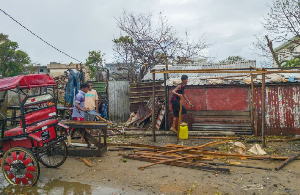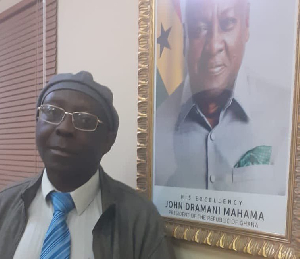Human rights lawyer Francis Xavier Sosu has stated that the outcome of the post-mortem examination on Richard Osei, the young man who died from alleged police brutality in Krofrom last week, does not insulate the police officers involved in the act from prosecution.
Osei, also known as Kwadwo Tawiah, died on the night of Thursday May 26, at the Manhyia Hospital where he had been conveyed by police officers who had reportedly assaulted and subsequently tasered him during night patrol duties, on suspicion of being a member of a gang terrorising Krofuom residents.
The coroner’s report on Monday May 30 had it that the victim died of heart failure, news of which was met with a violent demonstration by youth of the town the following day, saying it was part of an agenda to cover up for the police officers and shield them from punishment.
Speaking on Accra100.5FM on Tuesday May 31, Mr Sosu told Nana Ama Agyarko that despite the pathologist’s findings, the family could initiate legal proceedings against the officers involved.
In his view, granted that the victim had heart problems, the beatings by the police likely triggered the condition, which should be grounds for prosecution.
“The fact that a heart attack led to his demise does not completely absolve the police officers from answering to their treatment of the young man. There are many people with heart problems but things trigger the severity of their conditions causing their death,” he said.
“In this case, what triggered the young man’s death was police beatings, so the police can’t go scot-free. If the deceased’s family is ready to go to court over the matter, it has the right to do so. It should not believe that the autopsy report stating the young man died of heart attack means the police officers are free. Once they subjected him to police beatings and dehumanising treatment, they cannot go scot free.”
Mr Sosu added that he had been “very saddened” by the happenings at Krofuom as he expected the police to carry out their duties responsibly by protecting citizens and getting rid of crime “in a lawful manner”.
Mr Sosu further explained that if in the event of performing such duties, police trample on some rights, it would be appropriate to take responsibility for such actions and, if need be, compensate the victim’s family.
“But to say the young man had a heart condition, I do not think that is correct. The violence visited by police triggered the heart trouble, leading to his death,” he sai
General News of Wednesday, 1 June 2016
Source: classfmonline.com













